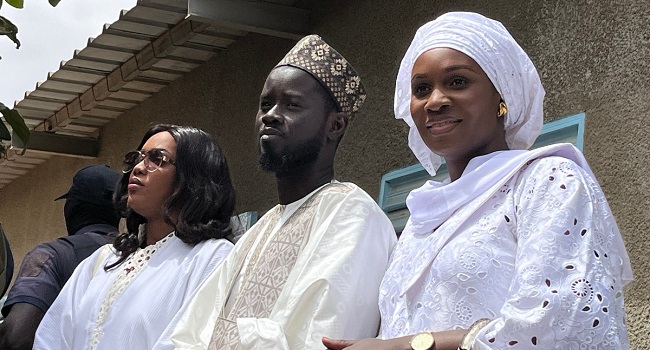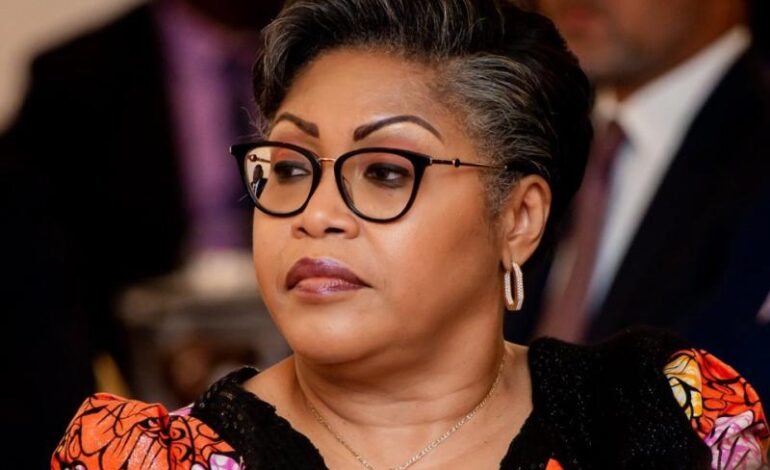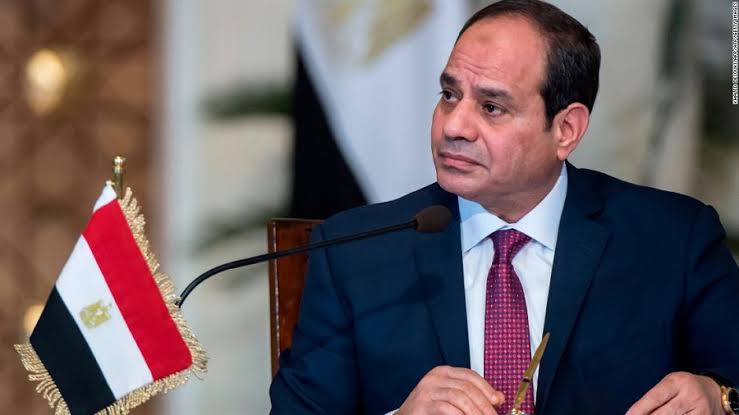
Faith Nyasuguta
In the final moments of Senegal’s electoral campaign, President-elect Bassirou Diomaye Faye, poised to take office on Tuesday (today), made a striking appearance alongside both of his wives, Marie and Absa. This unprecedented display in the nation’s political arena reflects Faye’s commitment to radical change.
Polygamy is deeply ingrained in Senegalese culture, particularly among the Muslim majority. Faye’s embrace of polygamy mirrors the traditions of his country. His first wife, Marie Khone, hails from the same village as Faye and has been his partner for 15 years, with whom he shares four children. His marriage to Absa, his second wife, is more recent, having taken place just over a year ago.
Sociologist Djiby Diakhate views Faye’s public acknowledgment of his polygamous relationships as a nod to Senegal’s cultural reality. While many men in Senegal support polygamy, women often express skepticism or mistrust of the practice.
Faye’s public appearance with both wives has ignited debate both domestically and internationally. While some argue for the cultural legitimacy of polygamy and decry Western judgment, others, including many Senegalese women and international organizations like the UN Human Rights Committee, condemn it as discriminatory against women.
The portrayal of polygamy in Senegal has been a subject of literary and media exploration. Senegalese author Mariama Ba’s novel “So Long a Letter” vividly portrays the emotional toll of polygamy on women. Television series like “Mistress of a Married Man” and “Polygamy” have also examined the complexities of polygamous households.
Former culture minister and history professor Penda Mbow observes that Faye’s presidency presents a new dynamic, as there has traditionally been only one First Lady. This shift prompts a reevaluation of protocol and expectations surrounding the presidential household.
Polygamy is prevalent in Senegal, especially in rural areas, where it is viewed as a means of expanding family networks. Islamic law permits men to have up to four wives, provided they can support them equally.

Official statistics on polygamous marriages in Senegal are scarce due to many marriages going unregistered. However, a 2013 report by the national statistics and demographics agency estimated that 32.5 percent of married Senegalese individuals were in polygamous unions.
Sociologist Diakhate sees Faye’s public acknowledgment of his polygamous relationships as a step toward transparency and acceptance. He believes that ending the practice of hidden polygamy, known as Takou Souf in the Wolof language, would benefit the country’s economy and matrimonial landscape.
Despite criticism, Faye remains proud of his family situation. During the presidential race, he expressed gratitude for his “wonderful wives” and their unwavering support.
President-elect Bassirou Diomaye Faye’s public appearance with both of his wives symbolizes a significant cultural and political moment in Senegal. While polygamy remains a contentious issue, Faye’s presidency offers an opportunity for dialogue and reflection on the role of tradition in contemporary society.
RELATED:




